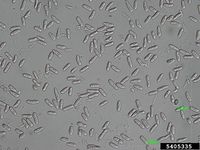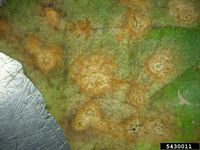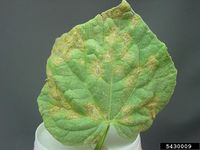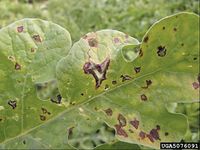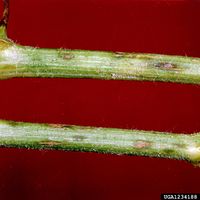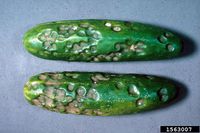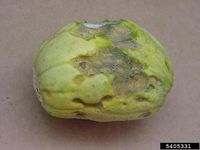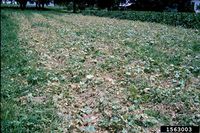Colletotrichum orbiculare
| Literature database |
|---|
| 119 articles sorted by: |
| • year (descending) |
| • research topics |
| • countries/regions |
| • host plants |
| • list of antagonists |
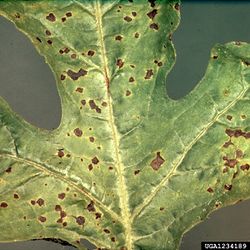
Source: Clemson University - USDA Cooperative Extension Slide Series - IPM Images
Colletotrichum orbiculare (Berk.) Arx 1957
The fungus is wide-spread and causes anthracnose diseases on cucurbit crops under warm and rainy conditions. Symptoms include spreading circular and necrotic leaf spots (sometimes angular) that develop a shot-hole appearance, deformed leaves, as well as necrotic spots on the stems. Cankers and rots develop on the fruits during ripening or storage. The diseases can result in defoliation and substantial yield losses.
The necrotic lesions contain acervuli (tiny fruiting bodies) with orange masses of conidia. The condia are elongated, about 10-15 x 5 µm large. They spread through the air by rain splashes. The formation of sexual ascopores is rare. The infection process involves the formation of dome-shaped, melanized appressoria structures.
| Vernacular names | |
|---|---|
| • English: | cucurbits anthracnose |
| • Français: | nuile rouge |
Synonyms:
Colletotrichum lagenarium
- Other images of Colletotrichum orbiculare (IPM Images - click to enlarge)
